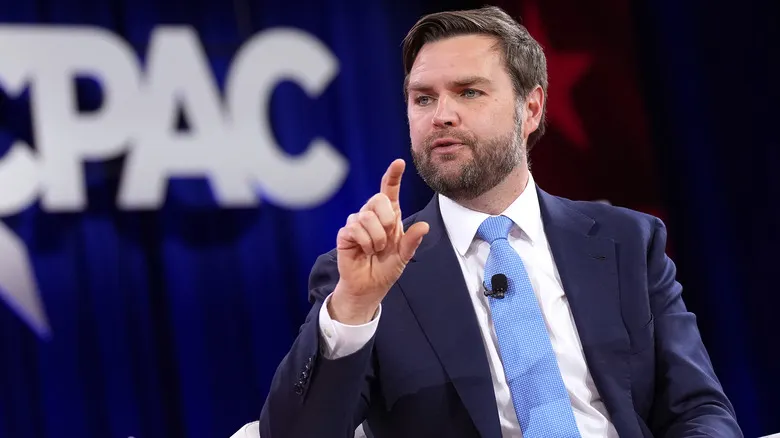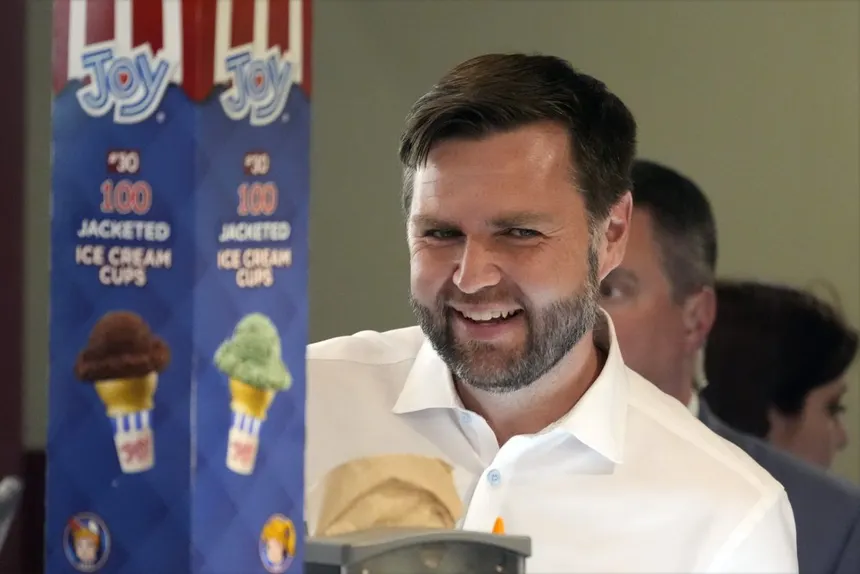JD Vance, a rising political figure, has embarked on a high-stakes European tour, aiming to promote the ‘America First’ agenda. This trip is designed to reinforce the United States’ evolving stance on foreign policy, trade, and international alliances.
What does this mean for global politics? How are European leaders reacting? Let’s explore the key moments and impacts of JD Vance’s mission in Europe.

JD Vance’s European Tour: Objectives and Key Agendas
1. Strengthening Diplomatic Ties with Like-Minded Leaders
- JD Vance’s visit includes meetings with leaders who share similar nationalist and protectionist views.
- Talks revolve around mutual economic benefits and defense strategies.
- He aims to build alliances that prioritize national interests over globalist policies.
2. Trade Policies: Revisiting Agreements
- JD Vance advocates for renegotiating trade deals that he believes put America at a disadvantage.
- He is pushing for fairer trade partnerships that benefit US industries and workers.
- European nations with strong economic ties to the US are keenly watching how negotiations unfold.
3. Military and NATO Commitments
- The US stance on NATO funding has been a hot topic, with a push for European countries to contribute more.
- JD Vance reinforces America’s commitment to military alliances but insists on a fairer distribution of defense spending.
- Some European nations are wary of reduced American involvement in NATO, while others are open to taking greater responsibility.

European Reactions: Mixed Responses to JD Vance’s Policies
1. Support from Conservative and Nationalist Leaders
- Several European leaders support the idea of prioritizing national interests over international obligations.
- Countries with strong conservative movements see JD Vance’s approach as a validation of their own policies.
- Some leaders welcome his stance on reshaping economic and security strategies.
2. Opposition from Pro-EU and Globalist Leaders
- Leaders committed to global cooperation are pushing back against the ‘America First’ narrative.
- Concerns over the US withdrawing from key agreements and security pacts are being voiced.
- Critics argue that a shift towards nationalism could disrupt global stability and economic growth.
3. Public Opinion and Media Reactions
- European media outlets have mixed coverage, with some praising Vance’s strong stance while others criticize his approach.
- Citizens in different nations react differently based on their political inclinations.
- Social media discussions highlight the polarizing nature of his visit.

Implications for US-European Relations
1. Economic Consequences
- If trade agreements are altered, industries in both the US and Europe could experience major shifts.
- Some businesses may benefit from renegotiations, while others could face losses.
- The long-term impact on supply chains and global markets remains uncertain.
- Key industries such as automotive, technology, and agriculture are particularly sensitive to potential changes.
- Europe may seek alternative trade alliances to mitigate risks.
2. Security and Defense Policies
- NATO’s future could be reshaped depending on America’s level of involvement.
- European nations might increase their defense budgets to compensate for potential US policy changes.
- Discussions on new security pacts and collaborations may emerge.
- Countries like Germany and France may push for a more independent European defense strategy.
- Military cooperation with other global powers could increase if US support declines.
3. Political Ripple Effects
- JD Vance’s visit could influence upcoming elections in various European nations.
- Populist movements may gain momentum with the backing of a major US figure.
- Traditional diplomatic relations could either strengthen or become more strained, depending on future negotiations.
- The EU may consider policy shifts in response to the new American stance.
- Nationalist rhetoric in Europe could be further emboldened, impacting regional stability.

Conclusion: What’s Next?
JD Vance’s European visit marks a pivotal moment in US-European relations. His advocacy for ‘America First’ policies challenges traditional global alliances and forces a reevaluation of economic and military commitments.
The future remains uncertain, but one thing is clear: JD Vance’s approach is reshaping international diplomacy. Will this lead to stronger, more independent nations, or will it create further divisions? The world is watching, and the impact of this visit will unfold in the months to come.
As the geopolitical landscape shifts, both the US and Europe must adapt to a changing reality. Negotiations, alliances, and diplomatic strategies will play a crucial role in shaping the next chapter of transatlantic relations.
Captain America: Brave New World Review – A Game-Changer or a Letdown?






